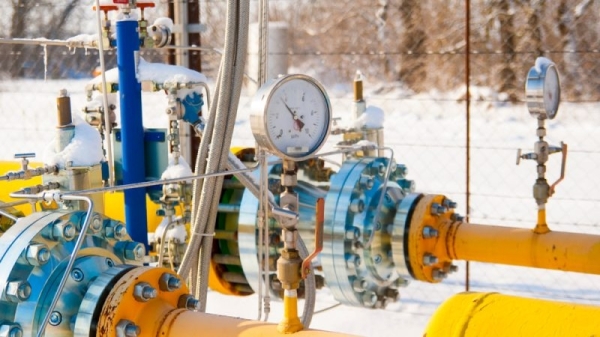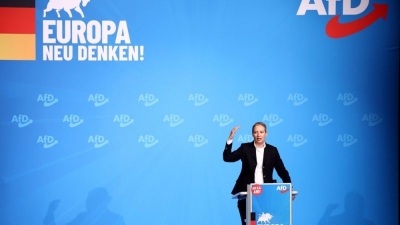Bulgaria to become main route for Russian gas imports to EU, Ukraine in 2025

With the expected end of Russian gas transit through Ukraine at the end of this year, the Balkan Stream gas pipeline through Bulgaria will become the main supply route for the EU and Ukraine, as discussed during the visit of the EU’s top energy official, Ditte Juul Jorgensen, to the dispatch centre of state-owned gas company Bulgartransgaz (BTG).
In the long term, Bulgaria will become an important transit country to ensure supplies to Romania, Moldova and the countries of south-eastern Europe.
“After the probable termination of the transmission of natural gas from Russia through Ukraine from the beginning of 2025, the vertical gas corridor through Bulgaria will be the only project that can ensure both the necessary transmission of liquefied gas and the continued operation of the gas transmission network and underground gas storage facilities in Ukraine,” said Vladimir Malinov, head of Bulgartransgaz.
Data from the EU Commission show that since the start of Russia’s invasion of Ukraine, the EU has drastically reduced its imports of Russian gas from more than 50% to 15% last year. In total, 9% of Russian gas supplies to the EU come via pipelines, with the remainder being liquefied gas. Following the suspension of the Ukrainian gas corridor, supplies to the EU and Ukraine will have to pass mainly through Bulgaria.
The Balkan country operates the Balkan Stream gas pipeline, which is a continuation of Turk Stream, a gas pipeline that was inaugurated exactly one year before the Russian invasion of Ukraine. Russian President Vladimir Putin’s project to bypass Ukraine was supported by the former leaders of Bulgaria, Turkey, and Serbia – Recep Tayyip Erdoğan, Boyko Borissov and Aleksandar Vučić.
After the outbreak of the war, Russia cut off gas supplies to Bulgaria, but the authorities in Sofia did not interfere with the transit of Russian gas to Serbia, Hungary and from there to Austria. Separately, Bulgaria and Greece built a gas interconnector linking the Bulgarian gas network to the Trans-Adriatic Gas Pipeline, which carries gas from Azerbaijan.
This connection also allows the transfer of LNG from the Greek terminals and the import of LNG from the Russian terminals via the Balkan Stream.
Currently, Bulgaria and Romania are not using the potential of the Trans-Balkan gas pipeline, which was the old route for the transit of Russian gas from Ukraine through Romania to Bulgaria before the launch of the Turkish Stream. The idea of the authorities in Sofia is to reverse the direction of this gas pipeline and make Bulgaria a gas export route to Romania and Ukraine.
This project is called the Vertical Gas Corridor and is a joint project of the gas companies of Greece, Bulgaria, Romania, Hungary, Slovakia, Moldova and Ukraine to extend the existing gas connections between them.
“This strategic route will guarantee access to the additional quantities of liquefied natural gas for consumers in Eastern Europe,” said Malinov.
“With the implementation of the projects to increase the capacities from Greece to Bulgaria and from Bulgaria to Romania, a technical possibility will be provided to transfer the additional quantities of natural gas, including from the Southern Gas Corridor and liquefied natural gas, with maximum utilisation of the possibilities of the existing infrastructure”, he added.
The Bulgarian authorities have discussed with the European Commission the possibility of its financial support for implementing the Vertical Corridor projects. The total indicative value of the two Bulgartransgaz Vertical Gas Corridor projects is €300 million, excluding VAT.
“We are looking for options for financing the projects, including increasing the company’s capital, debt financing, using state guarantees and European financing,” Malinov said.
The project to increase the capacity with Greece will also provide an opportunity to increase supplies from alternative sources to North Macedonia to cover between 50 and 80% of the country’s daily needs.
(Krassen Nikolov | Euractiv.bg)
Read more with Euractiv




